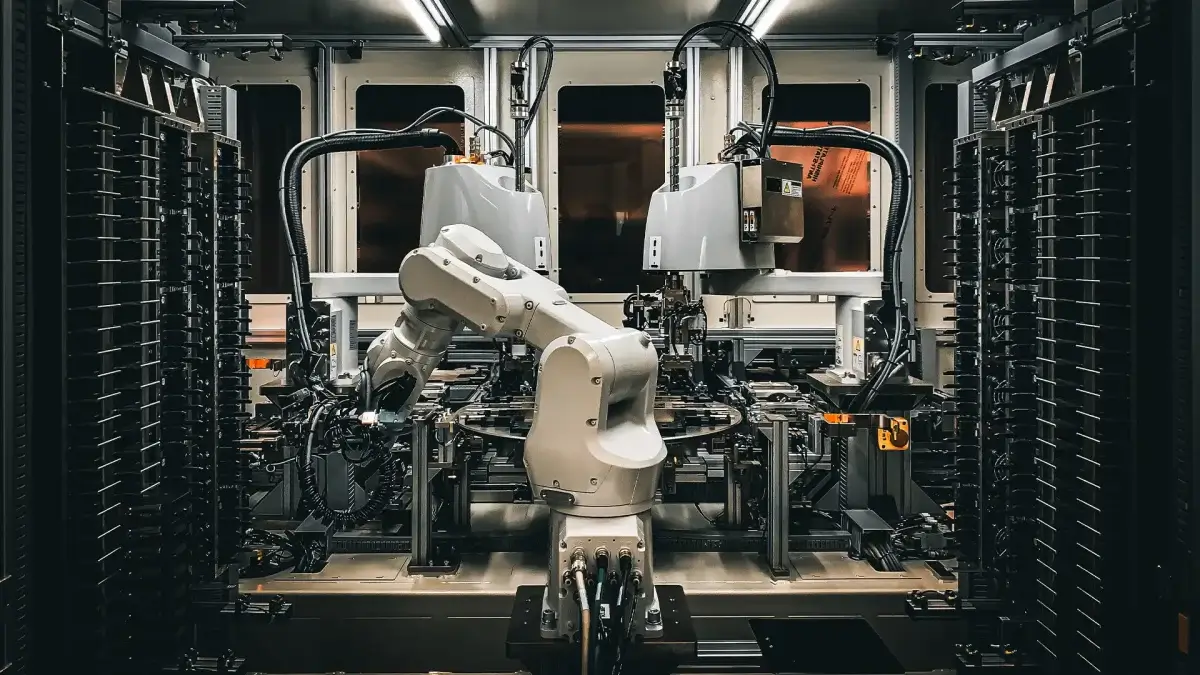Nowadays, growth in the industrial world is at an all-time high pace. Businesses continuously seek ways to increase their production efficiency. One of the most significant advancements in achieving this goal has been the introduction of automation equipment. By automating repetitive tasks and improving precision, these machines enable businesses to streamline their production processes, reduce errors, and maximize output.

Automation not only optimizes the speed of production but also enhances overall operational efficiency, reducing costs and wastage. It is an essential advancement for companies to remain competitive in the global market. Let’s explore how automation machines can significantly enhance production efficiency, offering insights into their benefits and the various ways they are transforming industries.
The Role of Automation Machines in Modern Production.
Automation machines play a critical role in modern production by taking over repetitive and time-consuming tasks. In industries where precision and speed are crucial, these machines ensure that tasks are completed with minimal human intervention.
Here is an overview of automation’s role in modern production efficiency:
1. Reducing Human Error and Improving Safety.
Human error is one of the most common causes of delays and defects in production processes. Automation machines can significantly reduce these errors in the following manner:
Minimizing Mistakes: Since automation machines follow a set of programmed instructions, they are far less likely to make mistakes than human workers. This improves the quality of the final product and also reduces the need for rework or repairs, saving time and resources.
Enhanced Workplace Safety: Many manufacturing environments involve hazardous tasks that can put workers at risk. These machines can take over these dangerous tasks, ensuring that workers remain safe while the job gets done efficiently.
2. Faster Production with Advanced Automation.
Automation machines are designed to carry out tasks at a much faster rate than manual labor. Here’s how they facilitate quick production lines:
Optimized Workflow: Automation machines can be integrated into various stages of the production process, streamlining the workflow and eliminating bottlenecks.
Higher Productivity Levels: With the ability to run 24/7 without fatigue, automation machines can significantly enhance productivity.
3. Cost Savings Through Automation.
While the initial investment in automation machines can be substantial, here’s how the long-term cost savings make it worthwhile:
Lower Labor Costs: These machines reduce the need for a large workforce, allowing businesses to cut down on labor expenses. This is particularly beneficial in industries where skilled labor is scarce or expensive.
Reduced Material Waste: Automation optimizes resource use, reducing material waste during the production process. By using materials more efficiently, companies can save money while also reducing their environmental impact.
4. Real-Time Monitoring and Data Collection.
One of the key features of modern automation machines is their ability to monitor production processes in real time and collect valuable data. Here’s how it helps:
Data-Driven Insights: Machines equipped with automated sensors and monitoring tools provide real-time feedback on production performance. This data helps managers identify improvement areas, leading to better decision-making and resource optimization.
Predictive Maintenance: These machines can also be programmed to alert operators when maintenance is required. It ensures that machines are serviced timely, preventing costly downtime and ensuring smooth production.
5. Sustainability and Environmental Benefits.
In addition to improving efficiency, here’s how automation machines contribute to sustainable business practices:
Energy Efficiency: Machines are often more energy-efficient than manual labor, reducing energy consumption and lowering operational costs.
Waste Reduction: By performing tasks with high precision, automation machines minimize errors and material waste.
Investing in an Efficient Tomorrow.
Automation machines have revolutionized the way modern businesses operate, offering significant improvements in production efficiency. From reducing human error to increasing throughput, these machines provide numerous advantages.
As industries continue to embrace automation, it is clear that these machines will play an essential role in driving future innovation and efficiency. However, this will require collaboration with an automation solutions partner.
Investing in automation is no longer a luxury but a necessity for businesses aiming to thrive in the modern market.
Get in touch with an automation solutions partner today!
Leave a Reply